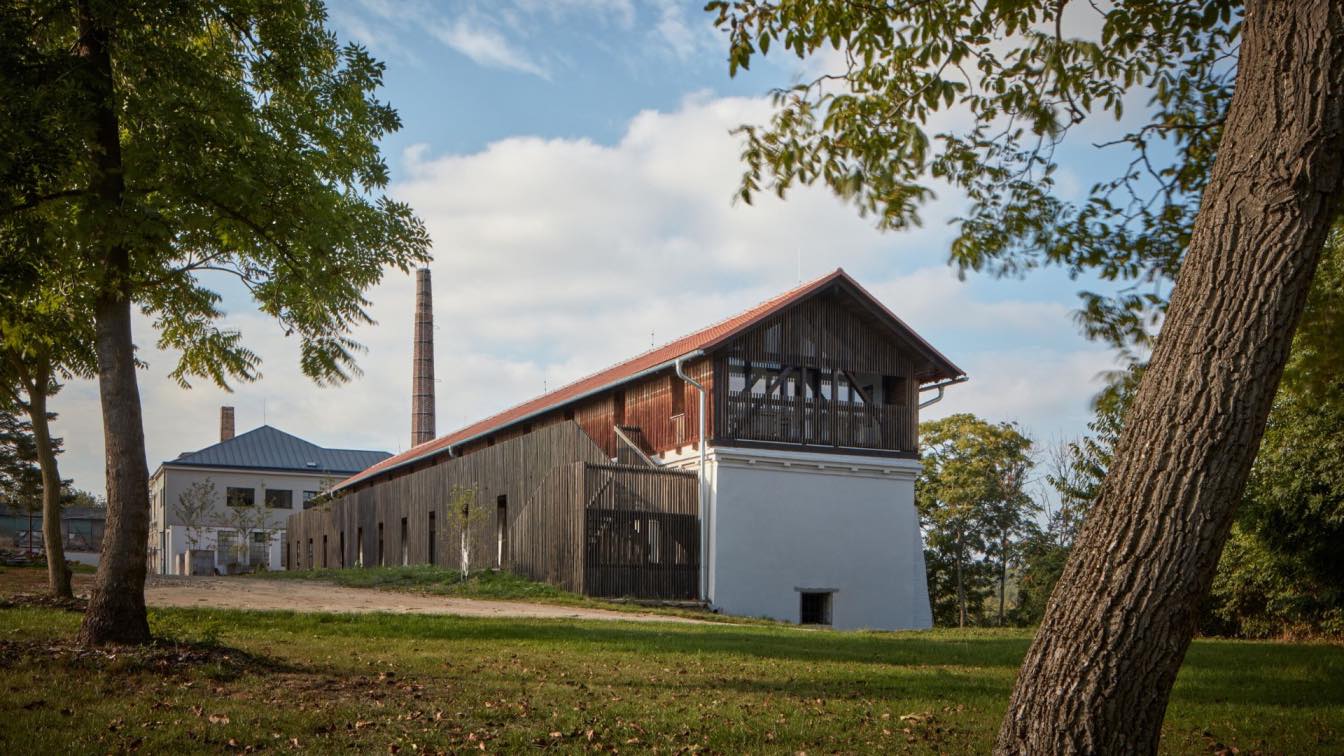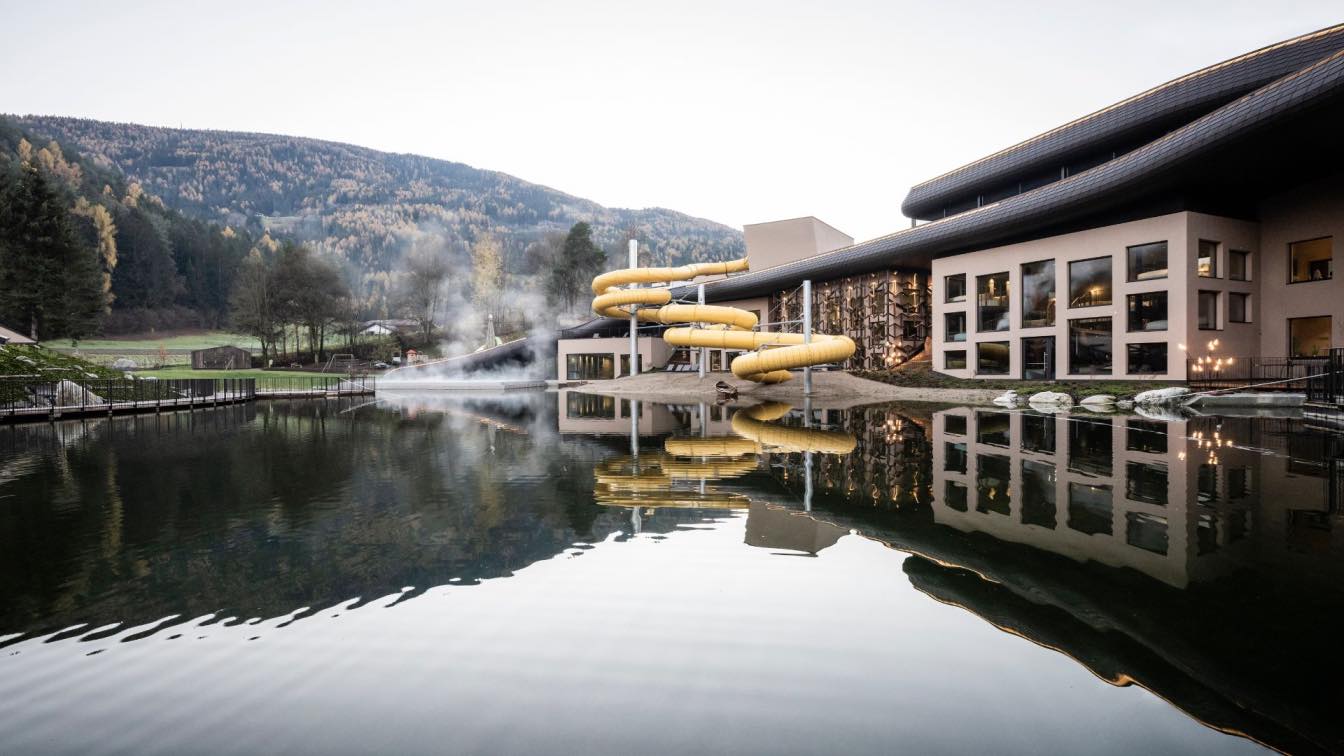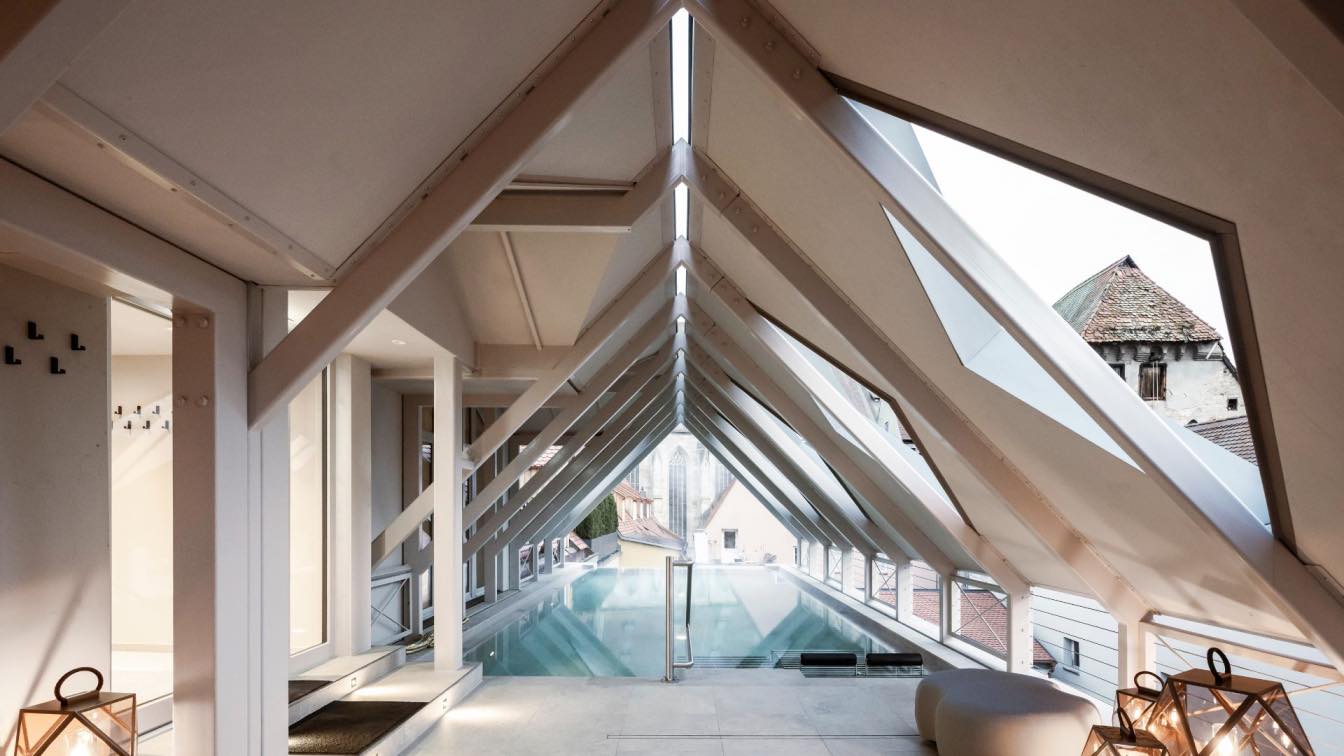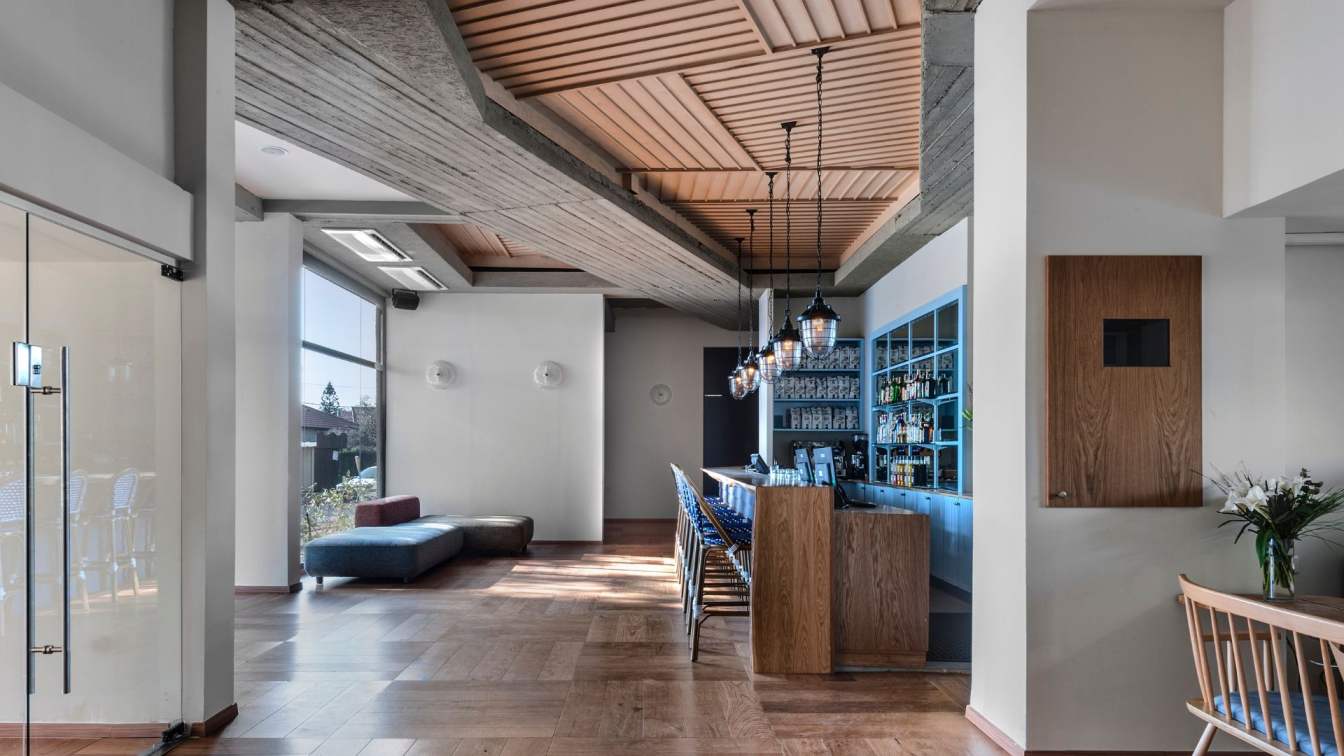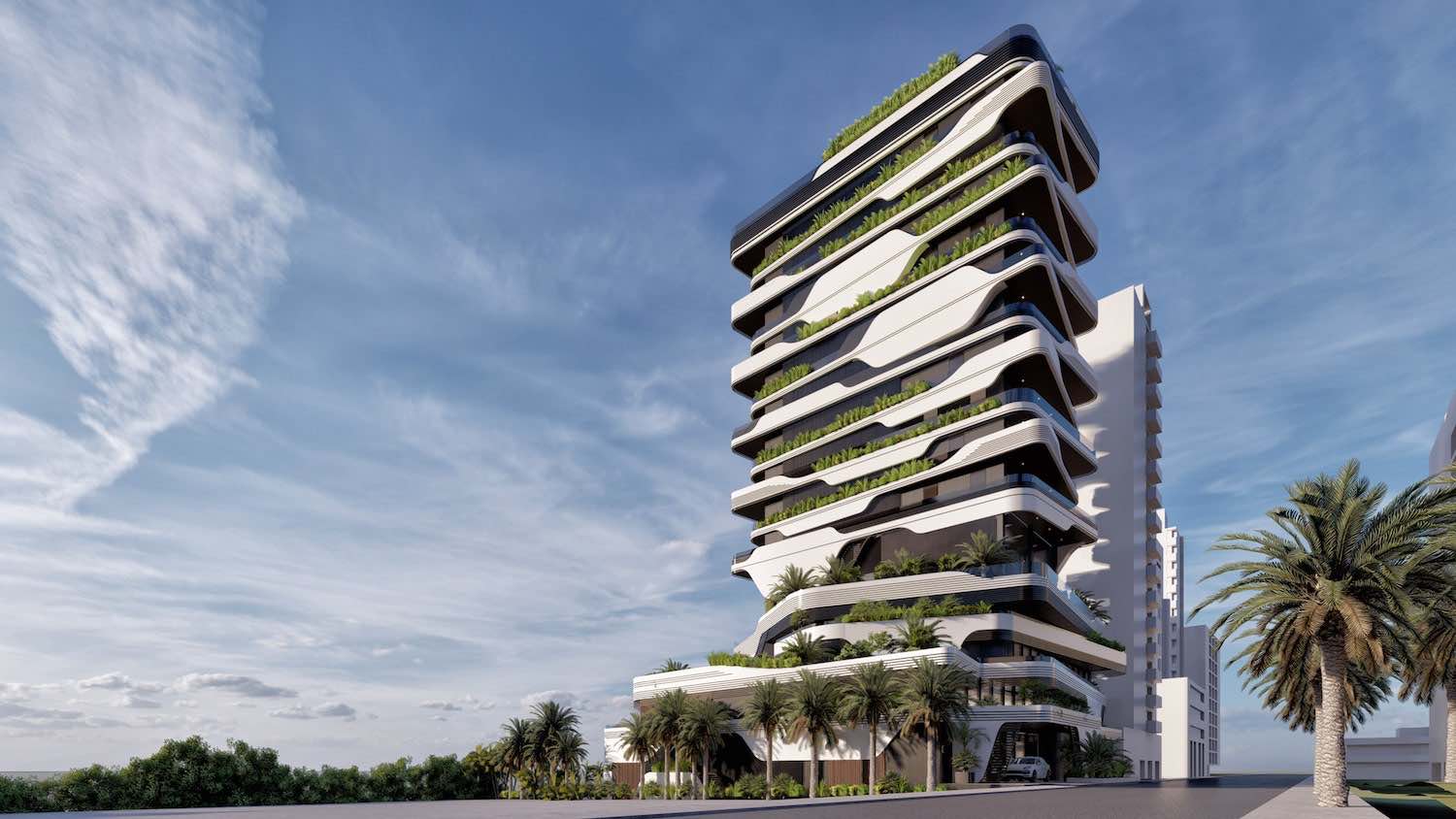ORA (original regional architecture): INTRODUCTION
The project deals with the second stage of the conversion of the former ceramics factory in Kravsko. The original Baroque complex was built as an inn on the Prague-Vienna route. In the second half of the 19th century, it was transformed into a famous ceramics factory and expanded with new buildings. The production operated here for a hundred years. Soon, however, it met the fate of many other obsolete industrial plants - production was closed down, the area changed hands and fell into long-term disrepair. The current owners, who come from Kravsko, are redeveloping the site for social events and adventure tourism.
Authenticity
This is what we strive for.
FACTORY
Welcome
The main landmark of the site, visible from a great distance, is the factory chimney. A neon circle is placed on the chimney, crowning it and naturally drawing the visitor towards it. The part of the original factory next to the chimney is now used as a reception area and staff facilities. The building is entered via a ramp made of coloured concrete. The axes of the site originally faced in a different direction, but for operational and ownership reasons it was no longer possible to follow them. The current entrance is the former back of the site, so it was necessary to create a new distinctive attractor that catches the visitor's attention at first sight. The ramp and staircase welcome visitors and naturally guide them to enter. The reception area is where the mixing of the clay used to take place. The discontinued mixers are being left in their original positions as they were once abandoned. We leave the whole space with its industrial character. Along one of the walls, we are creating an installation from plaster moulds into which pots were cast. Here the moulds are stacked in columns and left only as aesthetic objects that have lost their meaning but are still beautiful. It's a way of keeping them in place and not getting rid of them.

THE PLASTER MOULD WAREHOUSE
Construction
It is an original utilitarian warehouse of plaster molds. The building has a 1:8 elongated floor plan on three floors. The vaulted cellars are recessed into the hillside to the south. The ground floor is brick, the second floor is timber-framed. The masonry is partly built from old plaster moulds that were used for casting ceramics. This material is not suitable for building at all. It is proof that throughout history people recycled and built with whatever was at hand.
Conversion
Conversion of buildings for a new purpose requires a greater degree of intervention than simple refurbishment. The project addresses the conversion of a former warehouse into an accommodation facility. The elongated shape allowed the layout to be chopped up into individual rooms like a salami. Due to the narrowness of the house of less than 6 metres, it was not possible to build a corridor inside. Particularly on the second floor, this would have meant a significant impact on the preserved wooden frames. Therefore, we decided to design a separate gallery that serves as a corridor for the upper rooms and creates a desirable threshold on the south side thanks to the dense lathing. The gallery/porch is constructed of second-quality oak lumber, which was originally intended to serve as firewood.
The rooms on the ground floor are accessible directly from the porch. To the north, the steel frames of the former factory windows have been retained. The new windows are behind them. The frames form a grille that acts as a barrier against falling, as the windows have a low sill. At the same time, the openings retain their original divisions. The whole building is wavy due to the pressure of the earth. We have added some support pillars to the north façade to stabilise it. However, in the rooms on the ground floor, you can read a significant leaning of the walls until one has to hold on to keep from tipping.
We were keen to preserve the authenticity of the building as much as possible, which forced us to insulate the inside of the building on the second floor. This left the original wooden, dusty façade in place, which, surprisingly, is still in good shape. The house has therefore not changed much in terms of expression. We kept the trusses in their structural logic. The eastern gable of the building has undergone the most significant transformation, as it is entirely glazed and thus provides distant views over the landscape.

Interior
The rooms on the ground floor are simple bright spaces. The bathrooms are separated by steel frames with frosted glazing, making them well lit.The upstairs rooms are given authenticity by the exposed beams and original boards, which have been dismantled and used as new flooring.All this is complemented by plaster moulds which are used as tables, lampshades or purely as objects of aesthetic interest. The moulds that were originally stored here, therefore, remain in place in reduced numbers.
SORTING PLANT
The building of the former sorting plant is the youngest of the whole complex. It dates back to the middle of the last century. Historically, it is the least valuable building, but it is still a fine example of industrial construction at that time, which was purely purpose-built. Even then, building materials were recycled during construction. Here we have followed a conventional design approach
Space For Celebration
Industrial buildings are ideally transformed for holding social events. With their open layout, they offer a versatile space that can be filled with events.The building now houses a restaurant with a kitchen on the ground floor. Adjacent to the restaurant is the greenhouse, which is a simple steel structure that we removed and replaced the roofing with glass. The attic space is accessed by a heavy steel welded staircase, which in turn functions as an art object in its own right. In the attic, there is a large hall to which we have retained its authenticity. All the structures are original with traces of age-old wear and tear.


























































About studio
ORA stands for Original Regional Architecture. Most of the studio's work consists of modifying existing structures, which was not a conscious choice. The authors like to work with constructions and fragments that were doomed to perish, to revive them in a new context. We design environment, houses, even small objects. The studio is based in Znojmo and Kutná Hora and operates mainly on the periphery

